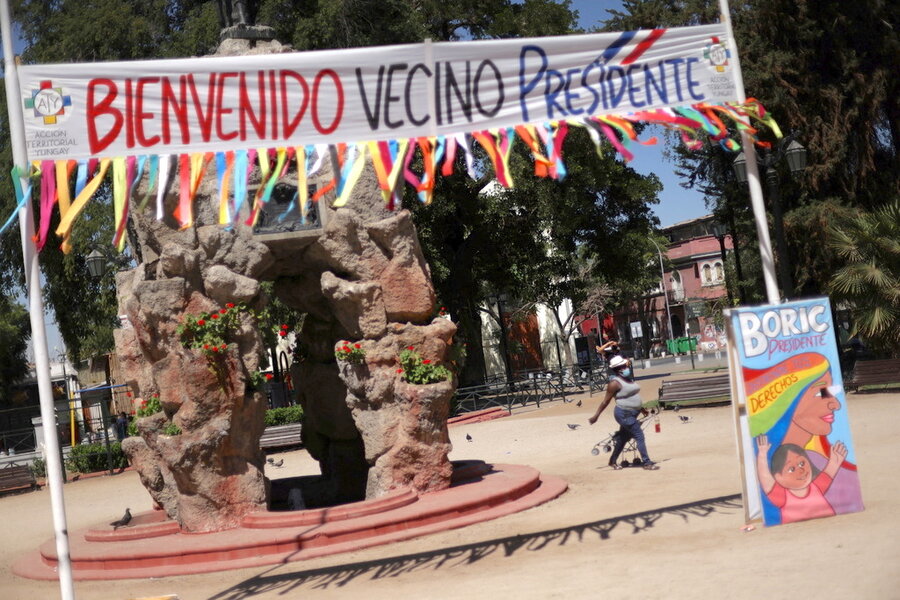In Chile, will meekness make a strong leader?
Loading...
In manner and style, Gabriel Boric has not changed since becoming president-elect of Chile three months ago. He still walks through his scruffy Santiago neighborhood in shorts and hiking boots. Patrons at a local lunch shop now call his favorite sandwich – avocado and tomato with extra mayonnaise – “el presidente.” When he takes the oath of office March 11, he won’t be wearing a tie. “We represent fresh air, youth, novelty,” he told BBC.
At a time when faltering governance in Latin America is tilting public support toward authoritarian rule, Mr. Boric represents something else, too: the possibility that societies, like individuals, are more open to reinvention through a commitment to widely shared values.
Mr. Boric has become the new face of a country striving for change not by abandoning democracy because of its shortcomings, but through a determination to realize its potential. Just 10 years ago, he was a prominent student protester. His presidential campaign arose in part from demands for a new constitution drafted and approved by the people.
Chile has the most stable economy in Latin America. But it is also one of the world’s most imbalanced. The richest 1% own a quarter of the country’s wealth. To fix that, Mr. Boric has promised to raise taxes to pay for, among other things, universal health care. Yet such liberal goals face hard economic realities. The pandemic has resulted in higher inflation rates and slower growth.
He also faces political obstacles. His party holds small minorities in both chambers of the Congress. He has already backed off his proposals to ease immigration requirements.
But Mr. Boric enters office with strong tail winds as well. The youngest person ever elected president, he also garnered the most votes in history. His agenda is deeply rooted in the feminist wave that has gathered strength across the region in recent decades. He enters office with Chile’s first predominantly female Cabinet.
He acknowledges that revolutionaries are not historically well known for patience and consensus-building. “I always start with trust in people and in the idea that we all want to build a better country,” he told a conference of business executives in January. “Radicalism is not in who shouts the loudest. The changes we are aiming at must be carried out with a broad dialogue and without exclusions – with gradualness and fiscal responsibility.”
It is not just neckties that the new president eschews. He has said he will continue to live in his modest home in one of Santiago’s grittier barrios rather than in the presidential mansion. In Chile, a radical agenda of humility in governance may be starting.







